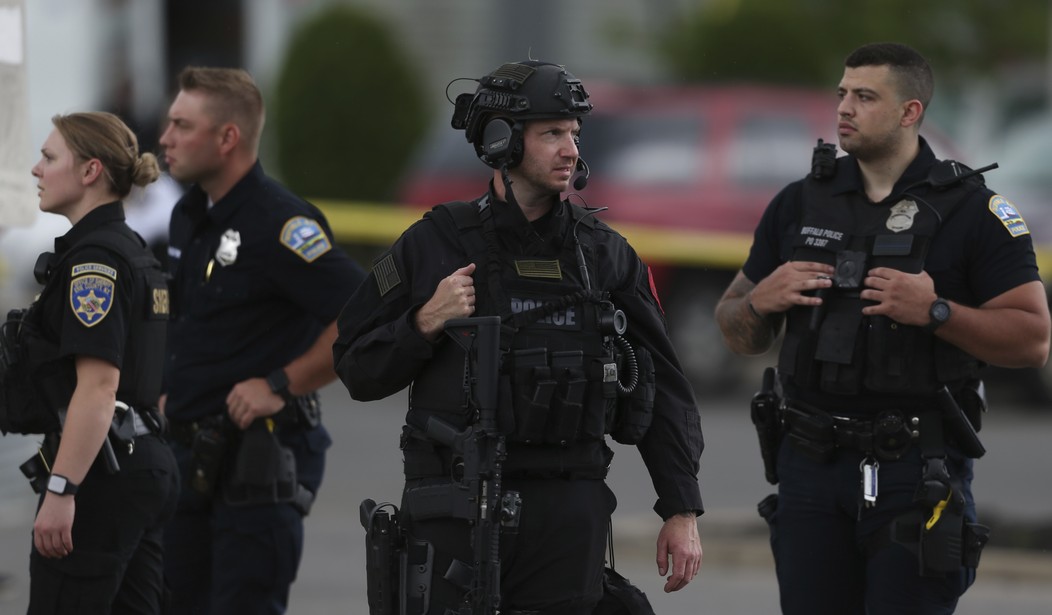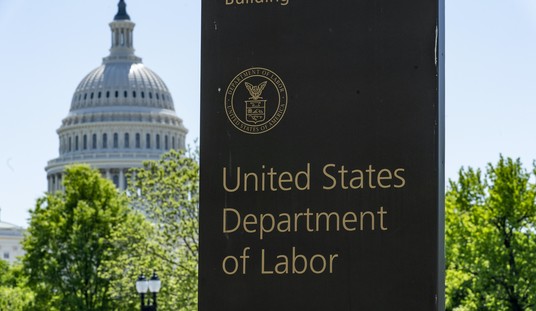The opinions expressed by contributors are their own and do not necessarily represent the views of RedState.com.
How much power should a state government have over local law enforcement matters? This might be a debate worth having, as it is becoming more of an issue amid skyrocketing crime rates happening all across the country.
We are now seeing what could be the beginning of a trend in which Republican-dominated state governments are considering legislation that would allow them to usurp law enforcement operations in blue cities. From a liberty-focused perspective, the issue is quite a compelling one, to say the least.
The Intercept reported:
In recent years, a movement to elect reform-minded prosecutors across the country has won hard-fought victories across a handful of large cities. Now a growing backlash is taking on a new form: At least nine bills introduced this year across five states would strip power from democratically elected prosecutors. In many of the cases, more conservative legislatures are taking away power from local prosecutors in strongly liberal and Democratic cities and putting them in the hands of Republicans holding statewide offices.
The report continues, noting that since the mid-2010s, “dozens of cities across the country have elected prosecutors who enacted criminal justice reforms.”
In some cases, residents of these cities have attempted to oust these district attorneys for their soft-on-crime policies. In San Francisco, voters removed Chesa Boudin, who was more concerned about protecting criminals and less worried about safeguarding citizens. But other “woke” prosecutors have managed to hang on to their positions despite efforts to remove them. It appears that Republicans are attempting to use a different strategy to curtail crime.
The Local Solutions Support Center and the Public Rights Project published a report in January showing that almost 30 bills have been introduced in 16 states over the past few years that would allow Republican-controlled state governments to take control of local law enforcement operations.
“Although only five preemption laws have passed,” the report states, “this new trend is part of a larger movement by reactionary states to use preemption to thwart criminal justice reform and undermine the will of local constituents calling for this change.”
The Intercept noted that the federal government “provides no legal protection for cities against state lawmakers who want to step in to stop a certain policy,” which means right-leaning legislatures can enact laws allowing them to exert some control over blue cities.
These laws appear to be intended to target far-leftist prosecutors who are reducing or eliminating cash bail, refraining from charging people for nonviolent drug possession offenses, and cracking down on police officers who abuse their authority. However, it is important to note that in many cases, these prosecutors have released repeat violent offenders and have softened their approach to these types of suspects. In several instances, many of these folks have gone on to victimize more people.
In Texas, GOP lawmakers introduced four bills that would prevent prosecutors from declining to file charges for certain types of offenses or seeking the death penalty in capital cases. Another measure would empower the state attorney general to levy fines against, and seek the removal of, prosecutors who he believes are not doing enough to crack down on crime in their cities.
Missouri’s Republican-controlled legislature is considering a bill that would allow the state to take over law enforcement operations in the city of St. Louis. The move comes shortly after progressives managed to take over the St. Louis City Board of Aldermen. Mayor Tishaura Jones has argued that officials closest to the ground are the best equipped to handle the problems these communities face.
Lastly, in Mississippi, conservatives in the legislature are proposing a measure that would create a separate court system and police force for a district in Jackson, which is majority black. The attorney general would be responsible for appointing prosecutors and public defenders, which would mean that the county would be the only one in the state that is prohibited from electing its own officials. Democrats and residents of the county have railed against the proposal, pointing out that it would be letting white officials override the will of the predominantly black community in deciding how it wants to be policed.
So, who is in the right?
On one hand, most who are liberty-minded would argue that folks living in a particular city should have the ultimate say in their own governance. They elect the officials who they believe best represent their interests and outside influences should not be given the authority to override the will of the voters. To put it simply, if a community wants “woke” prosecutors and a district attorney that will not prosecute certain types of crimes, they should be able to make that decision. Not every city wishes to arrest people for low-level drug offenses.
However, if a local government is failing – or refusing – to keep its residents safe from criminality, should the state government be able to step in? If residents vote for government officials who promise to safeguard their communities, but then work to protect the criminals who are victimizing them, perhaps the state should be able to intervene. In this case, a local government allowing criminals to violate the rights of the citizenry is essentially derelict in its duties, is it not?
It’s not an easy question to answer as each situation is different. There is no one-size-fits-all solution.
Still, I would prefer to allow the residents of a city to decide how they want their officials to address crime in their communities. Since they are the ones on the ground, they should be the ones to decide what is best for their neighborhoods. The state should not possess the power to override the will of the people in this regard.
Such a policy might appeal to Republicans and conservatives right now. But what happens when state legislatures led by progressives decide that turnabout is fair play? If residents want a tougher approach to crime coming from their city governments, progressives should not be able to use the power of the state to force these local officials to protect violent criminals instead of the citizenry. By giving in to the temptation to wield the power of the state as a political cudgel, we will end up handing the authoritarian left yet another weapon to use to force its will on the rest of the population.













